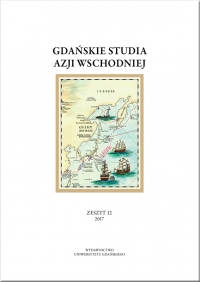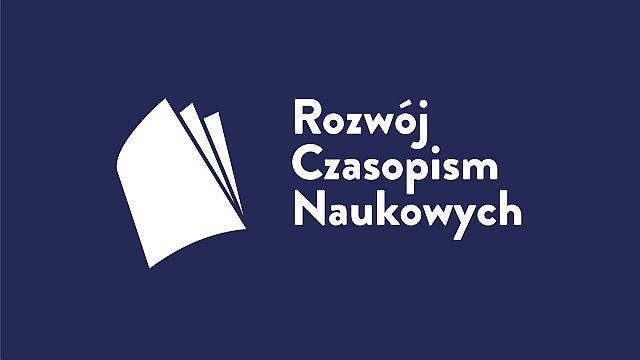Tradycyjnie rozumiane karate jako system edukacyjny – zastosowanie pedagogiki sztuk walki
Abstrakt
Karate się zmienia, ponieważ zmienia się tło kulturowe i motywacja osób, które je uprawiają. W rozwoju karate dominują dwa główne nurty: zachowanie ortodoksyjnej nauki oraz ciągłej modyfikacji. W szczególności przedstawiciele tradycjonalistycznych japońskich szkół i organizacji podtrzymują ducha Budo poprzez praktykowanie karate. Ponieważ karate jest częścią Budo, mamy do czynienia z systemem edukacyjnym, w którym wartości Budo są wykorzystywane do prawidłowego rozwoju ucznia. Wiąże się to z długoterminową nauką i wychowaniem przez system normatywny i codzienną dyscyplinę fizyczną, a raczej psychofizyczną. Karate, w różnych jego formach, przynosi liczne wartości edukacyjne. Jednak nauczyciel wybiera ucznia na podstawie jego osobowości. Tylko dobry nauczyciel jest w stanie właściwie wykorzystać karate, aby pozytywnie wpłynąć na charakter i osobowość ucznia. Przykład dawany przez samego mistrza jest szczególnie ważny. Zwykle jest to długi proces. Karate, tradycyjnie rozumiane, uczy tradycyjnych wartości i jest godne polecenia jako system edukacyjny. Zasadniczo działania większości organizacji i entuzjastów bardzo dobrze służą rozwojowi kultury fizycznej i kształtowaniu prospołecznych postaw młodzieży. Karate jest wykorzystywane również w resocjalizacji. Jednak w przypadku szkół nastawionych na sporty wyczynowe lub całkowicie skomercjalizowanych zastosowanie pedagogiczne mogłoby okazać się szkodliwe.
Downloads
Bibliografia
W.J. Cynarski, Teoria i praktyka dalekowschodnich sztuk walki w perspektywie europejskiej, Rzeszów 2004
W.J. Cynarski, Antropologia sztuk walki. Studia i szkice z socjologii i filozofii sztuk walki, Rzeszów 2012
D. Bolelli, On the Warrior’s Path. Philosophy, Fighting, and Martial Arts Mythology, 2nd ed., Berkeley 2008.
Sasaki Taketo, Budo (the martial arts) as Japanese culture: the outlook on the techniques and the outlook on the human being [in:] Martial Arts and Combat Sports – Humanistic Outlook, ed. W.J. Cynarski, Rzeszów 2009
Nakiri Fuminori, Concept of Budo and the history and activities of the Japanese Academy of Budo, “Ido Movement for Culture. Journal of Martial Arts Anthropology” 2015, vol. 15, no. 1
W.J. Cynarski, J. Skowron,An analysis of the conceptual language used for the general theory of martial arts – Japanese, Polish and English terminology, “Ido Movement for Culture. Journal of Martial Arts Anthropology” 2014, vol. 14, no. 3
K. Krippendorf, Content Analysis: An Introduction to Its Methodology, Thousand Oaks 2004.
D.C. Spencer, Ultimate fighting and embodiment. Violence, gender, and Mixed Martial Arts, New York 2012
M. Shahar, Klasztor Shaolin. Historia, religia i chińskie sztuki walki, trans. by J. Hunia, Kraków 2011
Budo – Pädagogik. Kampf-Kunst in Erziehung, Therapie und Coaching, eds. J.-M. Wolters, A. Fuβmann Albert, Augsburg 2008
J. Słopecki, W.J. Cynarski, O pedagogice budō, “Ido – Ruch dla Kultury / Movement for Culture” 2009, vol. 9
A. Szyszko-Bohusz, The problem of the proper ethical and social preparation of teachers and participants of combat sports and martial arts in the contemporary epoch of globalisation, science and technology, “Ido – Ruch dla Kultury / Movement for Culture” 2007, vol. 7
W.J. Cynarski, W. Błażejewski, W. Pasterniak, Pedagogika nowoparadygmatyczna. W poszukiwaniu nowych inspiracji i aplikacji pedagogicznych, Rzeszów 2016
J. Piwowarski, Moral strength and safety culture. Revitalizing the West in view of Japanese conceptions, “Ido Movement for Culture. Journal of Martial Arts Anthropology” 2013, vol. 13, no. 4,
W.J. Cynarski, Karta Budo. Analiza treści z perspektywy humanistycznej teorii sztuk walki, „Polish Journal of the Arts and Culture” 2013, no. 7(4)
A. Szyszko-Bohusz, Pedagogika holistyczna [in:] Przemiany w myśli i praktyce pedagogicznej, eds. M. Feiner, A. Szyszko-Bohusz, Kraków 1998
W.J. Cynarski, K. Obodyński, H. Zeng, Martial arts anthropology for sport pedagogy and physical education, “Romanian Journal for Multidimensional Education Lumen” 2012, vol. 4, no. 2
Der friedliche Krieger. Budo als Methode der Gewaltprävention, eds. U. Neumann, M. von Saldern, R. Pöhler, P.-U. Wendt, Marburg 2004.
R.L. Light, Mushin and learning in and beyond budo, “Ido Movement for Culture. Journal of Martial Arts Anthropology” 2014, vol. 14, no. 3, pp. 42–48.
C. Kuśnierz, Values associated with practicing modern karate as a form of cultivating old Japanese Bushido patterns, “Ido Movement For Culture. Journal of Martial Arts Anthropology” 2011, vol. 11, no. 4, pp. 1–5;
V.A.V. Rosa, “Samurais” in modern Europe: motivations and understandings of Portuguese karatekas, “Ido Movement for Culture. Journal of Martial Arts Anthropology” 2012, vol. 12, no. 2
J. Słopecki, Ocena programów edukacyjnych jūjutsu w Polsce (rozprawa doktorska), Warszawa 2010.
J. Skórska, The roads of modern karate [in:] Humanistic Theory of Martial Arts and Combat Sports: Conceptions and Problems, eds. W.J. Cynarski, K. Obodyński, Rzeszow 2003
Sugino Yoshio, Ito Kikue, Tenshin Shoden Katori Shinto Ryu Budo Kyohan, trans. by U. Rott, Norderstedt 2010
Tanaka Fumon, Samurai fighting arts: the spirit and the practice, Kodansha International 2003.
W. Zabłocki, Polskie sztuki walki. Miecz oburęczny i szabla husarska, Podkowa Leśna 2001.
Z. Sawicki, Polish Martial Art – Signum Polonicum, “Ido Movement for Culture. Journal of Martial Arts Anthropology” 2011, vol. 11, no. 2
U. Moenig, Taekwondo – From a martial art to a martial sport, London 2015
H.Z. Zeng, W.J. Cynarski, Participation Motivations of Taekwondo Athletes / Students, Saarbrücken
K. Warchoł, W.J. Cynarski, Olympism and fair play in physical education in the light of Polish theoretical reflection, “Journal of Health Promotion and Recreation” 2012, no. 2(4)
The History and Spirit of Budō, eds. T. Uezumi, A. Bennett, Katsuura 2010.
R. Jakhel, W. Pieter, Changes in primary motives of karate beginners between 1970–1999, “Ido Movement for Culture. Journal of Martial Arts Anthropology” 2013, vol. 13, no. 1
C. Layton, M. Higaonna, S. Arneil, Karate for self-defence: An analysis of Goju-ryu and Kyokushinkai kata, “Perceptual and Motor Skills” 1993, no. 77(3)
J. Bachmeier, F. Uebrück, Zendo Karate Tai-Te-Tao Kata, Regensburg 1999
M. Rosenbaum, Kata and transmission of knowledge in traditional martial arts, Boston 2005
Szeligowski P., Tradycyjne karate Kyokushin. Budo i walka sportowa, Łódź 2009.
V. Morris, A. Trimble, Karate Kata and Application, vol. 3, London 1991
C. Layton, M. Higaonna, S. Arneil, Karate for self-defence…; G. Hahnemann, Goju-Ryu Karate-Do. Kata and Bunkai, Thalheim2003
H. Kogel, Kata Bunkai. Die geheimen Techniken im Karate, Aachen 2010.
L. Sieber, Zendo Karate Tai-Te-Tao [in:] Selected Areas of Intercultural Dialogue in Martial Arts, ed. W.J. Cynarski, Rzeszów 2011
W.J. Cynarski, The meaning of self-defence: an expert definition. A contribution to the theory of self-defence and combat [in:] Proceedings of 10th International Conference on Kinanthropology: “Sport and Quality of Life”, eds. M. Zvonař, Z. Sajdlová, Brno 2016
R. Habersetzer, Tengu (-no-michi). Ma voie martiale: Pour un art martial aux normes de notre temps, Paris 2007.
A. Litwiniuk, W.J. Cynarski, Educational and utylitarian value of practising combat sports and martial arts [in:] Humanistic Theory of Martial Arts and Combat Sports: Conceptions and Problems, eds. W.J. Cynarski, K. Obodyński, Rzeszow 2003
W. Ben Messaoud, Social representations of karate among young people, “Ido Movement for Culture. Journal of Martial Arts Anthropology” 2015, vol. 15, no. 4
S. Mor-Stabilini, The Essence of Karate-do: Sankido Example, “Ido Movement for Culture. Journal of Martial Arts Anthropology” 2013, vol. 13, no. 4
G.E. Mattson, The Way of Karate, Tokyo 1963.
Hidetaka Nishiyama, R.C. Brown, Karate. The Art of “Empty-Hand” Fighting, Boston – Vermont – Tokyo 1990.
W.J. Cynarski, Karate in Europe – Institutional development and changes: “karatedo wa rei ni hajimari, rei ni owaru koto wo wasuruna”, “Research Journal of Budo” 2014, vol. 46, no. 3
Gichin Funakoshi, Karate-do – My Way of Life, Tokyo – New York – San Francisco 1975
P.K. Jahnke, Zen-Do Karate “Tai-Te-Tao”, München 1992
W.J. Cynarski, Martial Arts – Idō & Idōkan, Rzeszów 2009
M. von Saldern, Bushido. Ethik des japanischen Ritters, 2nd ed., Lüneburg 2009; Meisterung des Ichs. Budō zur Gewaltprävention?, hrsg. M. von Saldern, Nordstedt 2011
C. Spring, Martial Arts: Application in Higher Education, Ex-L-Ence Publishing [b.m.] 2015
Masutatsu Oyama, The Kyokushin Way. Mas. Oyama’s Karate Philosophy, Tokyo 1979
L. Sieber, W.J. Cynarski, A new stage in the history of the Idokan organization, “Ido Movement for Culture. Journal of Martial Arts Anthropology” 2013, vol. 13, no. 3
L. Sieber, P. Pawelec, Professors of martial arts. Holders of this title in martial arts science, “Ido Movement for Culture. Journal of Martial Arts Anthropology” 2016, vol. 16, no. 3
M. Ashkenazi, Ritual and the ideal of society in karate [in:] Combat, Ritual, and Performance. Anthropology of the Martial Arts, ed. D.E. Jones, Westport, Connecticut – London 2002
W.J. Cynarski, Droga sztuk walki a polityka, “e-Politikon. Kwartalnik Naukowy Ośrodka Analiz Politologicznych Uniwersytetu Warszawskiego” 2015, no. 13
J. Lee-Barron, Martial arts training as a method of modifying attitudes and behaviours in the classroom, “Ido Movement for Culture. Journal of Martial Arts Anthropology” 2012, vol. 12, no. 1

 Uniwersyteckie Czasopisma Naukowe
Uniwersyteckie Czasopisma Naukowe





